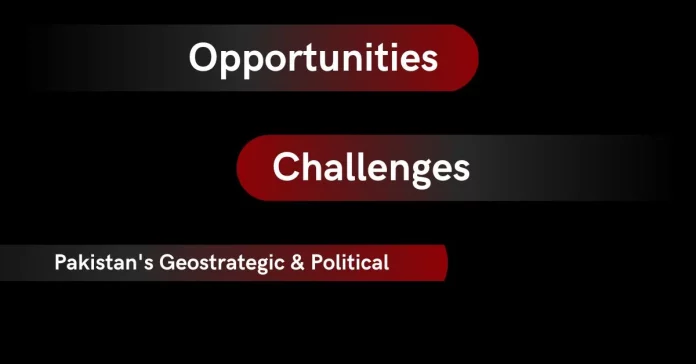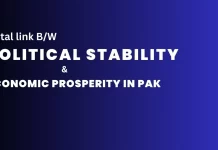Introduction
Pakistan is a country located at the crossroads of South Asia. Its geostrategic location makes it a vital link between South Asia, Central Asia, and the Middle East. Pakistan’s geopolitical importance is undeniable, and it has faced numerous challenges due to its unique location.
Brief Overview
One opportunity for Pakistan is its potential as a regional economic hub, with its location offering access to major markets in the region. However, Pakistan faces several challenges in realizing this potential, including poor infrastructure, energy shortages, and security concerns.
Another opportunity for Pakistan is its strategic location as a gateway to Central Asia and the Middle East, which presents opportunities for regional connectivity and trade. However, this also presents challenges, as Pakistan’s relations with its neighbors have been strained at times, particularly with India and Afghanistan.
In terms of political significance, Pakistan is a nuclear-armed state and a key player in the global war on terror, given its location along the Afghanistan border. However, Pakistan has also struggled with terrorism and extremism within its borders, presenting significant challenges for its government and security forces.
Overall, Pakistan’s geostrategic and political significance presents both opportunities and challenges, which will require careful navigation and management by its leaders and policymakers.
Pakistan’s Geostrategic Importance
Pakistan’s location has made it a crucial hub for trade and transportation routes, connecting South Asia to Central Asia and beyond. Its border with Afghanistan, Iran, and China has given it an important role in the region’s geopolitics. Moreover, Pakistan is a member of the Shanghai Cooperation Organization (SCO), which comprises Russia, China, Kazakhstan, Uzbekistan, Kyrgyzstan, and Tajikistan. This membership gives Pakistan a strategic importance in Central Asia.
Pakistan’s Political Importance
Pakistan’s geopolitical importance has also made it an important player in regional politics. It shares a border with India, and the two countries have had a long-standing conflict over the Kashmir region. Moreover, Pakistan has played a crucial role in the US-led war on terror, and its strategic location made it a critical ally in the war. Pakistan’s relationship with the United States has been complicated, with moments of cooperation and mistrust.
Challenges Faced by Pakistan
Pakistan has faced numerous challenges due to its geopolitical location. The country has struggled with political instability, economic woes, and internal security issues. Furthermore, Pakistan has faced diplomatic isolation due to its strained relationships with some neighboring countries. The Kashmir issue with India, Afghanistan’s instability, and the tension with Iran have contributed to Pakistan’s diplomatic challenges. Moreover, the war on terror has led to internal security concerns, including terrorism, militancy, and sectarian violence.
Opportunities for Pakistan
Pakistan’s unique geostrategic location presents opportunities for the country as well. Its location has made it a potential hub for regional trade and transportation, particularly with the development of the China-Pakistan Economic Corridor (CPEC), which is part of China’s Belt and Road Initiative (BRI). The CPEC project includes infrastructure development and investment in energy, transportation, and industrial sectors, which has the potential to boost Pakistan’s economy and strengthen its strategic ties with China.
Furthermore, Pakistan’s membership in the SCO provides opportunities for regional cooperation and economic integration. The SCO aims to promote regional security, stability, and development, and Pakistan can benefit from increased economic and diplomatic ties with its member countries.
Conclusion:
Pakistan’s geostrategic and political importance cannot be understated. Its location at the crossroads of South Asia, Central Asia, and the Middle East has given it a critical role in regional geopolitics. However, this location has also presented numerous challenges, including political instability, economic woes, and internal security issues. Nevertheless, Pakistan’s unique location also provides opportunities, particularly with the development of the CPEC project and its membership in the SCO. The country has the potential to become an important regional player and to overcome its challenges with strategic planning and cooperation with its neighbors.














